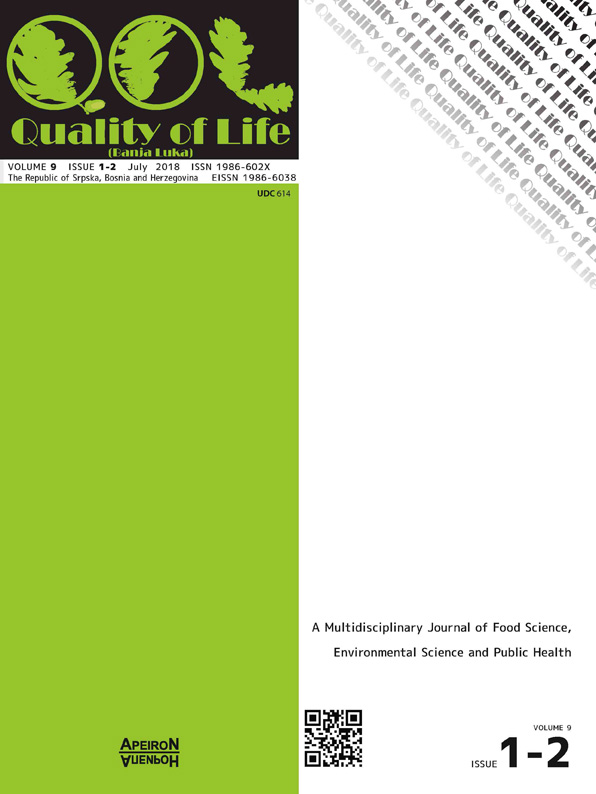Chemical Composition and Antibacterial Activity of the Essential Oil of Menthae piperitae L.
DOI:
https://doi.org/10.7251/QOL1801005MAbstract
The subject of this study was the examination of the chemical composition and antimicrobial activity of peppermint oil (Menthae piperitae L.), that was produced from the plant collected from the plantation in the city of Banja Luka. To examine the chemical composition of the Mentha piperita essential oil we used the GC-FID method. On it’s chromatogram it was clearly shown that the main components of the oil were menthole with the content of 43.66%, menthone 20.02%, iso-menthone 7.73%, following by 1,8-cineole with a percentage of 6.49% and menthil-acetate with 3.31%. The content of the previously mentioned components were all in accordance with the suggestions made by Ph.Eur 8.0. For the purpose of examination antimicrobial activity of the peppermint oil we used agar diffusion method. The results have shown that etheric oil of Menthae piperitae reflects very good antimicrobial activity on all bacterial cultures that we used in this study. The inhibiton zones moved from 12 mm for Pseudomonas aeruginosa to 37.66 mm for Staphylococcus aureus. Such an outcome of our study, and many others from all around the world, indicates the future potential use of peppermint oil in the treatment of bacterial infections, maybe even lowering the use of antibiotics.Downloads
Published
2018-09-06
Issue
Section
Чланци
